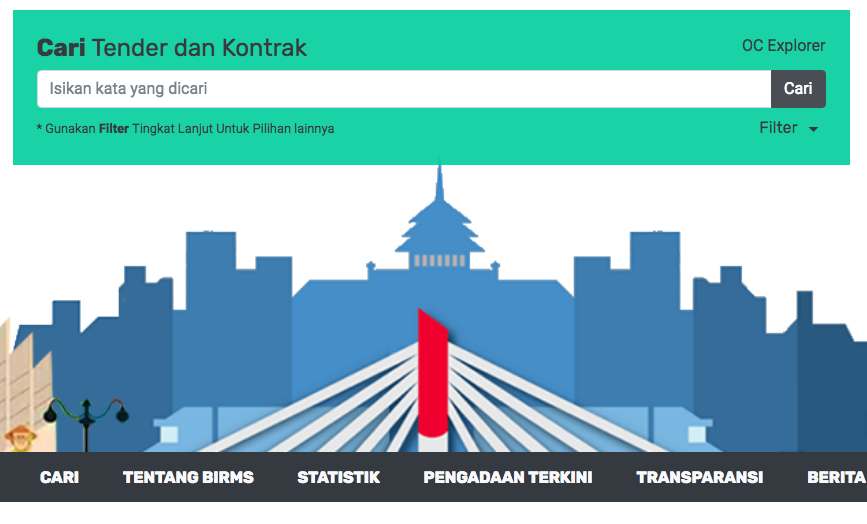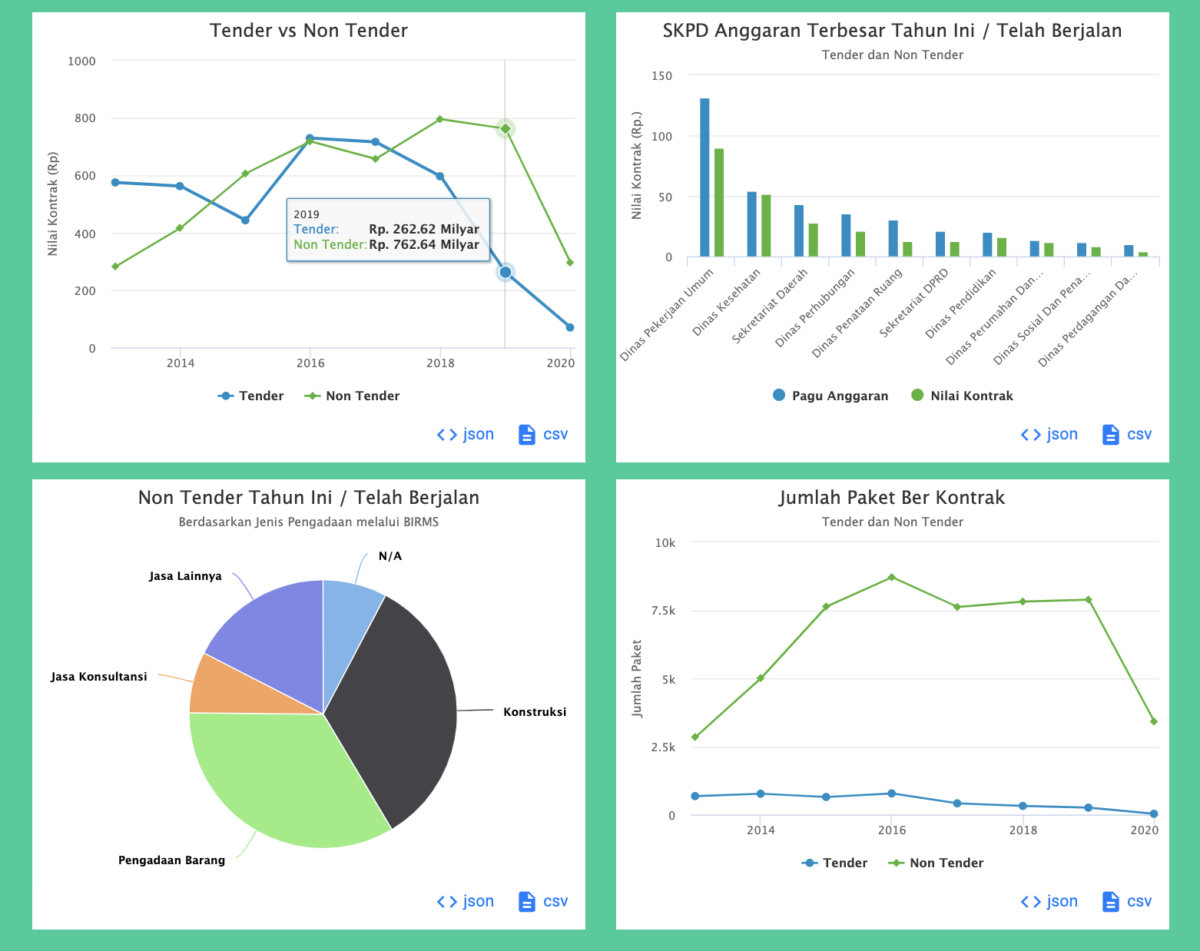Open Contracting Support & Training in Bandung, Indonesia
With the support and engagement of the World Bank, DG provided training and coaching to a municipal government development team in Bandung, Indonesia to implement Open Contracting Data Standard (OCDS) data mapping.
This partnership has led to the launch of an exciting new procurement data portal for Bandung City, with a functioning OCDS API.
Instead of Implementation, Developer-to-Developer Collaboration
DG typically develops technology tools that build on OCDS, converting data to OCDS and visualizing it in our analytics tools, or conducts in-depth assessments of open contracting readiness.
Here, our role was different: instead of technology builder or implementer, it was that of mentor. We were asked to bring our experience working with OCDS to guide and provide help to another developer to implement the standard himself.
So how did DG help Bandung City become one of the first cities to publish planning, tender, and award data in OCDS?
The collaboration has focused on aiding the local development team to publish OCDS data through an API and linking the API to a public dashboard that enables citizens to parse the city’s procurements. Through technical capacity building, bi-weekly meetings, online task management, and close engagement, DG provided code samples and live code to work with the local team, so the team could create their own OCDS output. The process has led to a more efficient implementation while contributing to sustainability of the project.
As of late 2018, Bandung City has published ~40,000 procurements from the past 3 years.
A Mentorship Approach to Open Contracting
Our experience working with developers from Latin America to Africa to Asia suggests that a bit of coaching and collaboration can go a long way. We took the following steps to work with the team in Bandung:
Instead of leaving it up to developers to discern the ins and outs of standards like OCDS as they go, we can share knowledge to ease an often-steep learning curve, providing guidance along the way.
 While much of the credit for this great work belongs to our partners, DG’s involvement sped up the process while raising the overall quality and sustainability of the resulting product; and we believe this is a model for driving open contracting success in the coming years.
While much of the credit for this great work belongs to our partners, DG’s involvement sped up the process while raising the overall quality and sustainability of the resulting product; and we believe this is a model for driving open contracting success in the coming years.
